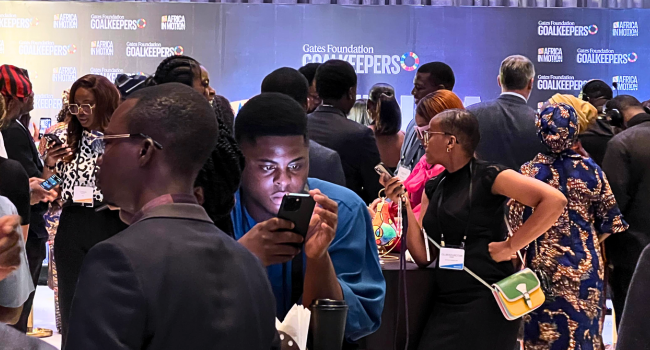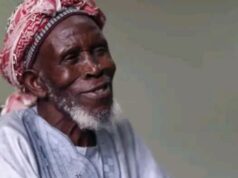The Chairman of the Gates Foundation and Microsoft Co-founder, Bill Gates, has stated that Africa’s future will be shaped by the investments it makes in its young population.
Speaking on Wednesday as a panelist at the Gate Foundation’s Goalkeepers event in Lagos, Gates emphasised that Africa’s youthful demographic offers a unique advantage — but only if proper investments are made in health and education.
“The amazing thing about Africa — and I show people this slide all the time — is that it is a very young continent. The portion of children born in Africa is going to be over half during this century. The city (Lagos) we are in today will, by far, become the largest city in the world. That’ll be interesting and keep things vibrant,” he said.
“Africa has this incredible offset of its youth, and that will make it the most interesting continent throughout this century. How much that youth can really drive progress will depend on the investment decisions we make in the next 20 years — in their health and their education. If we prioritise that, there’s an unbelievable future here.”
Young people at the Gates Foundation’s Goalkeepers event, hosted in Lagos. Wednesday, June 4, 2025.
READ ALSO: $100bn Spent On Healthcare In 25 Years Strengthened Partnerships In Nigeria, Others — Bill Gates
Asked whether he remained hopeful that Africa and Africans can still deliver on big health goals, Gates responded affirmatively, citing examples of local success stories.
“Well, certainly, Gombe State is an example — really focusing on the performance of the workforce and being willing, even with very tight budget conditions (which is true throughout Africa), to emphasise not just health, but specifically primary health care. And we see very quickly that when that’s done, childhood deaths go down, maternal deaths go down, and nutrition rates go up,” he said.
‘AI Transforming Health Care’
Gates also pointed to the role of innovation and technology, particularly artificial intelligence (AI), in transforming healthcare delivery across the continent.
“AI is coming along — AI which is improving at the global level, and AI which is being shaped specifically by entrepreneurs in Africa to meet African needs.
“If you take the combination of Africa getting richer, more philanthropists emerging, rich countries restoring generosity, and the sharing of best practices and innovation. We have some incredible tools coming along, even for things like sickle cell disease — which we need to get rid of. It’s a dramatic burden.”
The Microsoft co-founder expressed optimism that the global child mortality rate could be halved from the current five million cases annually and lauded Nigeria for its strong local partnerships.
“Here in Nigeria, we’ve had amazing partners who understand delivery and how we can work to support government efforts. Ultimately, the government has the responsibility. We’re here to accelerate those systems.
“These next 20 years, the countries in Africa will reach a stage of real economic momentum. Helping them accelerate that — understanding unique challenges, simplifying delivery, and lowering costs — will make a world of difference. The last 25 years went way better than I expected — childhood death rates, for example. We have a lot to be proud of, but even more to work on,” Gates stated.
Bill & Melinda Gates Foundation
Gates also reflected on the work the foundation has done in Africa over the past 25 years.
He revealed that the Gates Foundation has spent $100 billion globally since 2000, with over 70 per cent of that sum directed towards global health — much of it in Africa.
“When we started the Foundation in 2000, our guiding principle was that all lives have equal value. One of our major concerns was reducing infant mortality globally, especially in Africa,” he said.
“So I looked and asked, ‘Are people taking this seriously? Are they making the medicines cheaper or tailoring them to local needs — for example, investing in new malaria tools? And the answer was no. That became the guiding light for the Gates Foundation.”
The Goalkeepers event, hosted by the Bill & Melinda Gates Foundation for the first time in Lagos, brought together global leaders, policymakers, and changemakers to assess progress toward the United Nations’ Sustainable Development Goals (SDGs).
Other notable attendees included Africa’s richest man, Aliko Dangote; the Governor of Lagos State, Babajide Sanwo-Olu; and the Governor of Gombe State, among other dignitaries.
The event was anchored by media personality Ebuka Obi-Uchendu.




